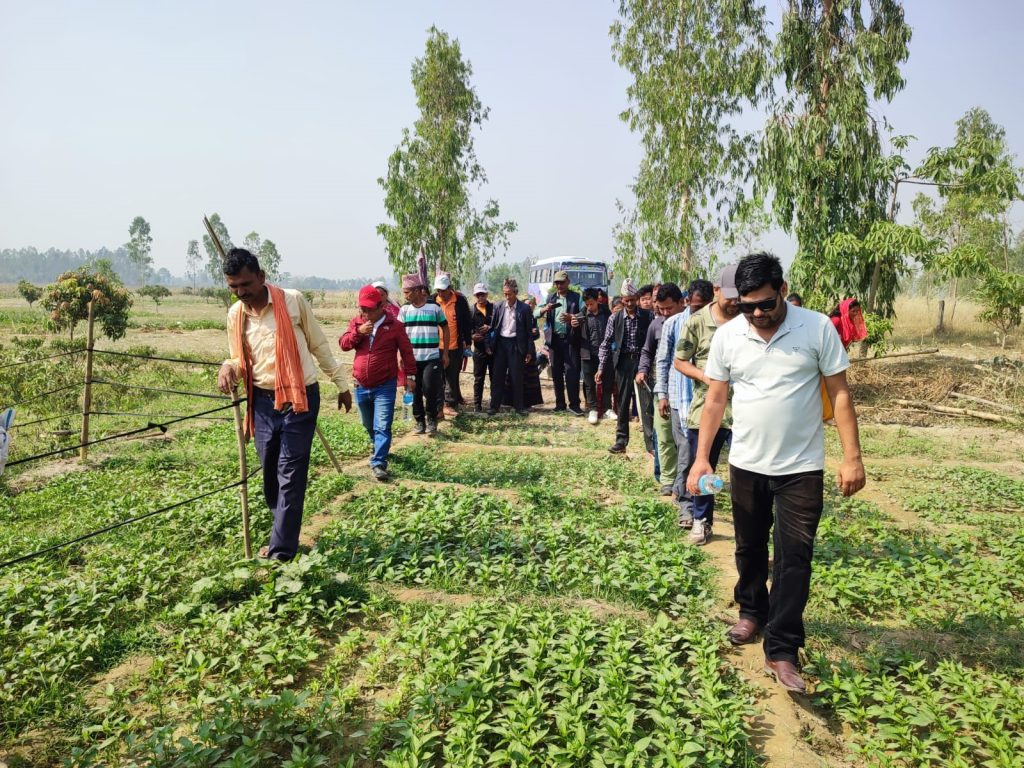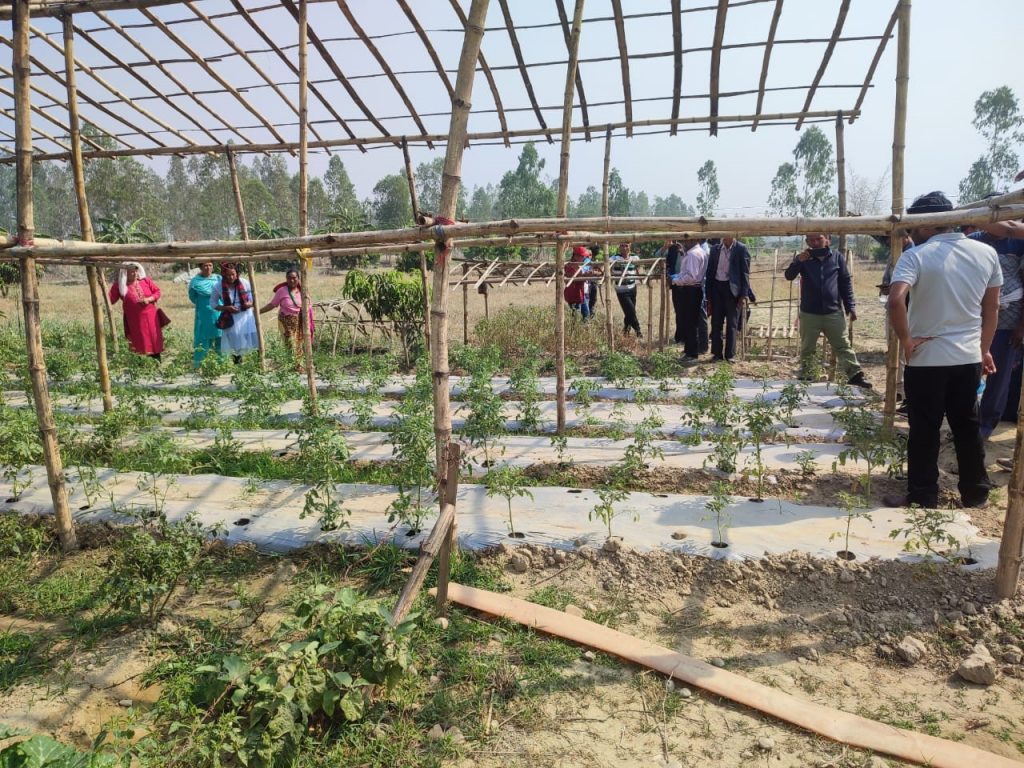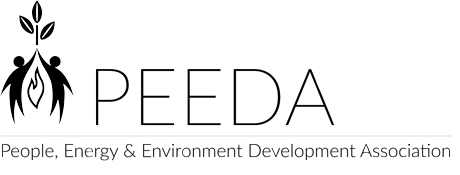Exposure Visit to Bardibas – Capacity Building of the Leaders of Farmer’s Group

The exposure visit to Bardibas Municipality of Mahottari district was organized from 16th to 18th Baisakh 2081 (28-30 April, 2024). Altogether 27 participants including new farmer’s group leaders of ward nos. 1, 2 from Baiteshwor Rural Municipality and 3, 4 from Garuishankar Rural Municipality attended this visit. The main purpose of the visit was to explore the best agriculture practices to strengthening community resilience in Mahottari and Dhanusha districts implemented by Community Development and Advocacy Forum Nepal (CDAFN) and learn the good practices encouraging the participants to implement the practices to make their village climate-resilient.
Observed activities
- Bioengineering: A smart way for watershed management (Cost effective for the control of flood and landslide
- Rain Water Harvest Pond (Harvesting water to use in Need)
- Raising of Seepage water for irrigation (Wise use of underground seepage water)
- River Bank Farming and Fruit Plantation (Approaches of changing river bank to fruit orchard)

Key messages from the exposure visit
After the observation of climate-friendly practices, following topics were discussed:
- Bio-engineering: Since, the project sites of PEEDA are highly vulnerable to landslides, bio-engineering could be a mitigating option with the joint effort of local bodies and PEEDA support.
- Farming in fellow land: There is huge area of land with high potential of fruit like kiwi, avocado and others are left fellow due to lack of knowledge and initiatives. Therefore, farming and plantation initiatives could be done in joint effort.
- Other possibilities could be identified with the joint effort of CDFAN, PEEDA and local bodies and replicate the best practices of CDFAN implemented in Mahottari and Dhanusha district in Dolkha district.
